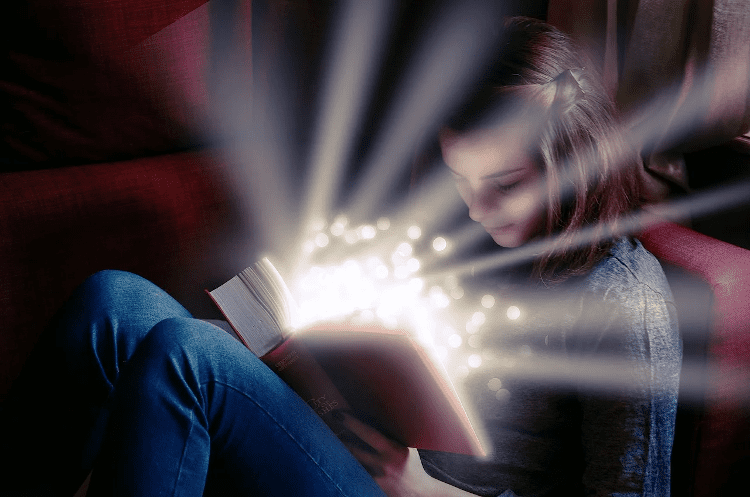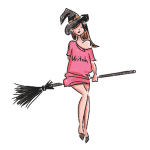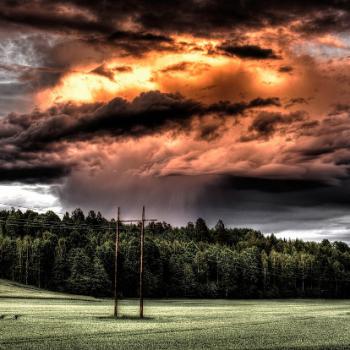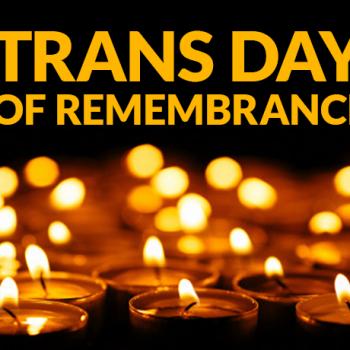
An ongoing problem with the pagan and polytheistic communities is not just our some of our problematic origins, but our influences. This ranges from founders of traditions who were/are sexist and homophobic to authors who inspired many but turned out to be transphobic, racist, etc. Prejudices and bigotry are common enough that we need to address it.
How do you handle material from a problematic source?
First we must ask the question: is the material itself problematic, just the source, or is it a mixture of the two?
There are many valid traditions that have dubious origins. It doesn’t render them invalid, but it DOES mean being honest when educating on its history. We must acknowledge it, address concerns, and thus be able to move forward.
Initiatory Wiccan traditions are an excellent example of this. We can’t say that our founders were perfect beings by far, and some of those problems influenced the original lore. This is why it’s good to examine, teach what was, but also teach why we’ve evolved from it. A great example would be attitudes on gender and so-called gender polarity.
It’s a similar deal with fiction, too
I’m sure by now people are aware of the fact that JK Rowling tweeted support for an anti-trans person and is a known transphobe herself. Sadly her work is beloved by many (I grew up on it myself) and has inspired many people to go into paganism, magic, and witchcraft.
However, her work is a mixed bag. There were clear antisemitic references with the depictions of the goblins running banks and their descriptions as being stereotypically antisemitic. Many Jews pointed this out time and time again. And we can’t ignore this in light of the other issues raised.
Her work is not perfect. Many works are not. So how we do handle it?
Can we still be a fan of problematic things and if so, how?
It’s been the case time and time again that when society evolves and moves on, past popular tv shows, books, and movies do not age well. It’s also true that there are existing works today that have issues, and yet still have fans.
In some instances, you can address and acknowledge that said work has problems without giving up being a fan of it on the whole. Other times those problems can taint the entire work whether it’s the work itself or just the person or people behind it. It’s frequently on a case by case basis. For historical purposes, you CAN acknowledge the good that the work did originally. But you also have to mention that we’ve evolved since then and why.
Shows like Buffy, for instance, are an example of that. The show was revolutionary for its time from a feminist perspective. However certain aspects have not aged very well and some were problematic to begin with. Issues include its overwhelmingly white cast, outright racism, Willow’s bierasure, etc. I still very much enjoy rewatching episodes from time to time despite this though I’ll admit that some episodes bother me and I no longer can. I can also tell you right now that the entire The Cosby Show is now unwatchable to me. There’s no way I can even look at anything Bill Cosby did without being reminded of how he drugged and raped women.
Current producers of said works when they put them out into the public need to consider this too, especially from a historical perspective. Recently Disney+ was criticized for its handling of historical content in comparison with Warner Brothers, for instance. Don’t just call it “outdated” or appear dismissive. Outright call it what it is: racism. Address problematic origins with brutal honesty.
Your comfort level may not be that of others in your own community, but you DO need to hear other people out from other communities
It behooves us all to hear out the marginalized communities and listen to what they have to say about whether or not a person or a particular media is problematic. If Jews say that something is antisemitic, it is. When black people call out a particular tv show for being racist, it is. If trans people tell you that a person is being transphobic, they are.
Don’t get overly defensive of what you love. Stop and hear them out. Listen to what others have to say. Hear them out. Change your behavior and get recommendations for what is a better approach.
Often finding out the reasons WHY something is problematic is more important than what is problematic. We need a greater understanding of how frequently biases, bigotry, and prejudices are systemic and institutionalized. These prejudices can be so embedded in current culture to the point where people don’t even realize that they are there until pointed out.
Not everything is redeemable, and we need to stop supporting some things
It’s fine to still enjoy and be inspired by the Harry Potter books and movies, even if certain elements are problematic. But if you’re continuing to financially support JK Rowling by buying books, seeing movies, etc you’re doing many communities a disservice. Enjoy what you have, but it’s time to stop.
Boycotts can be effective. Voting with your money is a time honored tradition in capitalist societies. Embrace it!
As for as historically problematic origins, however, what can you do? For starters, you can support the traditions and their people who are honest about their the nature of their historical beginnings provided they’ve demonstrated that they’ve moved past them. You can accept previously problematic people into the community provided that they’ve demonstrated growth and a willingness to change. Changed behavior, after all, is the best apology.
The United States is an entire country founded on problematic origins. Maybe we as Americans need to take these tips to heart for how to move forward with our own issues. We need to be way more honest about history in general.
















